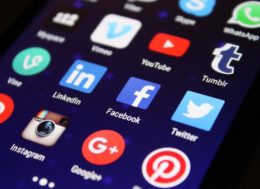


Once a Social Media Crisis Hits, the Reputation Management Clock is Ticking
From New York Times staff writer Michael Grynbaum:
The toppling of Roseanne Barr — from her racist late-night tweet to the early-morning backlash and ABC’s axing of her highly rated show — took less than 12 hours.
That is the equivalent of hyperspeed for businesses and brands that are accustomed to taking their time when it comes to high-stakes decisions about key employees who land in hot water.
But the intensity and immediacy of the social media age have turned corporate crisis management into an exercise where minutes, and sometimes seconds, count. And the praise that ABC executives received this week for their swift response will most likely serve as an example to other businesses facing public relations disasters.
“It’s the concept of the golden hour of crisis response,” said Kara Alaimo, who teaches public relations and reputation management at Hofstra University. “It’s a term borrowed from emergency medicine: Everyone knows if you get a heart attack victim to the hospital in the first hour, they’re more likely to survive.”
Ms. Alaimo added: “If you respond quickly, you get to frame the narrative, rather than allowing other people to frame your actions and motivations for you. That is the key to surviving a crisis on social media.”
Do we do the right thing now, or do we do the right thing when we’re left with no other choice?
Still, every public-relations fiasco is unique, a circumstantial stew of cultural context, financial consequence and the particular flavor of the offense. In some ways, experts said, ABC and its corporate parent, the Walt Disney Company, benefited from the sheer outrageousness of Ms. Barr’s remark, which depicted Valerie Jarrett, an African-American woman and one of President Barack Obama’s closest advisers, as the product of “muslim brotherhood & planet of the apes.”
“It was a fait accompli that advertisers were going to abandon the show,” said Stu Loeser, a communications consultant for Fortune 500 companies who was the press secretary for former Mayor Michael R. Bloomberg of New York. For ABC and Disney, Mr. Loeser said, the choice was simple: “Do we do the right thing now, or do we do the right thing when we’re left with no other choice?”
But companies must sometimes face murkier scenarios while still experiencing the same pressures of a fast-moving Twitter conversation that can quickly coalesce into boycotts and protests.
Last September, ABC’s corporate cousin ESPN came under intense pressure after the “SportsCenter” host Jemele Hill, who is African-American, called President Trump a white supremacist. “Donald Trump is a white supremacist who has largely surrounded himself w/ other white supremacists,” Ms. Hill wrote on Twitter.
For the rest, click here.